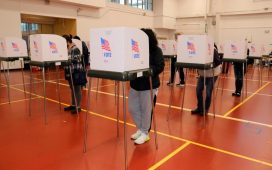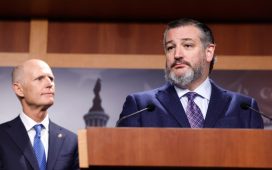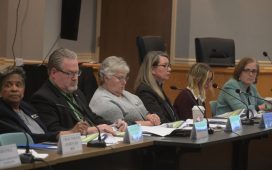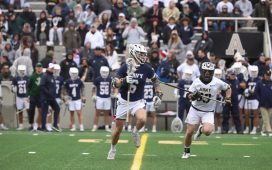As horse racing continues, alongside much of the country, to ponder the challenges of diversity and inclusion in its fan base and workforce, one man is hoping he can contribute part of the answer.
Michael Davis’ idea is still in the early stages and has come together at a rough time for embarking on new non-profits, but he is determined to press forward anyway. Davis is the president and chief executive officer of the Oliver Lewis Inner City Thoroughbred Jockey Club, which he hopes will connect inner city youth in North Little Rock, Ark., to the Thoroughbred industry. The goal is to provide a diversion for at-risk youth while providing the racing industry a new source for future employees and leaders.
“My mom had moved from the South when I was two years old from to a big city – Milwaukee,” Davis recalled. “She didn’t like it there — there was a lot going on with riots and things like that, so the three youngest kids she sent back to her mom’s house in Mississippi, where her oldest brother had four horses. I learned the rural life, that you could have a horse in your yard.
“They had a calming effect. Just looking into the animal’s eyes, I fell in love with the horses. I learned to ride and ended up buying my uncle three more horses when I got older and got a good job. I had older brothers and sisters so I never was going to get into trouble, but I wanted to be out there with the horses. It can really change a kid’s life when they see there’s something beautiful they can care for.”
Davis went on to work in network radio, his career eventually bringing him to the North Little Rock area. Davis found himself volunteering at a church project alongside R. Scott Gallimore, a retired jockey who has since become a pastor at Piney Grove United Methodist Church. The echo back to his own exposure to racehorses, combined with his new surroundings, made him wonder if there was a way to give kids the same experience he had on those trips to Mississippi.

Davis with his wife Rochelle
Davis said the areas around North Little Rock he hopes to serve is largely a poor, marginalized area which has suffered particularly from the economic impact of COVID-19. Crime is a common outlet for teenagers, and he’s hoping that a well-timed distraction can provide an alternative.
“I thought if we could turn their lives around before they could get into the criminal justice system, that would be better,” he said. “It’s kind of a free-for-all once that happens.”
One day, he hopes to bring groups of interested children of 12 to 16 years old to tour Oaklawn Park and area horse farms and meet people in the industry with the hope they could connect with jobs. He envisions bringing off-track Thoroughbreds to schools and church groups to get kids interested in learning more. Career counseling and internships will be a big part of the program for interested students.
Initial funding went toward getting the organization properly registered and recognized as a 501c3 nonprofit, so now the group is focusing on fundraising for programs and marketing. So far, Davis has had positive feedback from local McDonald’s and Wal-Mart stores, as well as Centennial Bank, all of which indicated interest in sponsoring the club. Then, COVID-19 hit, and they told him to wait for a new fiscal year to begin before they could commit.
Long before Tom VanMeter’s comments sparked a racing industry-specific conversation about racial disparities in the sport, Davis had hoped his group could serve as a connector for the predominantly African American community and the Thoroughbred business, which in recent years has become increasingly white and Hispanic. Davis himself was surprised to discover what a rich history black horsemen have in racing’s early days, at its highest levels.
“I knew about the black jockeys in history but as I began reading more, it was more than I ever knew,” he said. “These kids don’t even know they have a history in Thoroughbred racing. If you look now, you wouldn’t know that. Most people don’t associate African Americans with the sport, but there was a time when it would have been a lot like the NBA is today – they were dominant in terms of trainers, working in the barns, and as jockeys in the late 19th century. We want to let them know they can get into it, there are jobs and internships there.”
That change in the sport’s racial makeup is important. Many of the kids Davis speaks to about horse racing see the sport as a place they may not be welcome, because they don’t see many modern stars and leaders who look like them.
“It’s just human nature. People gravitate toward and excel at things they do most – baseball, basketball, football. Other sports – NASCAR, hockey are paying more attention to [diversity], and trying to bring the sport to certain audiences they haven’t in the past. Arthur Ashe, in his time, tennis was a sport that had little representation [for minorities] but when kids saw he could win the U.S. Open and the French Open, just like with Serena and Venus Williams, it changes everything. You have a role model and can say, ‘Hey — I can do that.’”
New to the Paulick Report? Click here to sign up for our daily email newsletter to keep up on this and other stories happening in the Thoroughbred industry.
Copyright © 2020 Paulick Report.








